
- Shandong Loyal Industrial Co.,Ltd.
- Macaroni Production Machine Instant Noodle Machine Biscuit Making Machine
Home> Company News> The Ultimate Guide to Corn Flakes Lines in 2024

The Ultimate Guide to Corn Flakes Lines in 2024
2024-04-20 15:36:16Introduction
Welcome to the ultimate guide to corn flakes lines in 2024. In this comprehensive overview, we delve into the intricate world of industrial food machinery, specifically focusing on corn flakes production lines. As experts in the field of food processing equipment, we aim to provide you with authoritative insights into the latest advancements, best practices, and industry trends pertaining to corn flakes manufacturing. Whether you're a seasoned professional seeking to optimize your production processes or a newcomer looking to understand the fundamentals, this guide is tailored to meet your informational needs. So, let's embark on a journey through the fascinating realm of corn flakes lines, where innovation and efficiency converge to shape the future of food manufacturing.

Components of a Modern Corn Flakes Line
In the realm of industrial food processing, the sophistication of corn flakes lines has evolved significantly, keeping pace with technological advancements and consumer demands. A modern corn flakes line comprises several essential components, each playing a pivotal role in the seamless production of this beloved breakfast staple. Let's delve into the key constituents that constitute the backbone of a contemporary corn flakes line in 2024.
1. Raw Material Handling System:
At the heart of any corn flakes line lies its raw material handling system. Here, the journey of corn from its initial delivery to the final product initiation begins. Advanced conveyor systems facilitate the smooth transportation of raw corn kernels to subsequent processing units. In this phase, precise control mechanisms ensure the optimal flow of raw materials, minimizing wastage and maximizing efficiency.
2. Cleaning and Conditioning Equipment:
Before undergoing any further processing, raw corn kernels must undergo thorough cleaning and conditioning. This crucial step ensures the removal of impurities, foreign particles, and moisture content, thereby guaranteeing the quality and safety of the final product. State-of-the-art cleaning equipment, including aspirators, destoners, and magnetic separators, effectively eliminate any contaminants, preparing the corn for subsequent processing stages.
3. Grinding and Cooking Units:
Once cleaned and conditioned, the corn kernels are subjected to grinding and cooking processes. Specialized grinding mills finely grind the corn into a homogeneous meal, while cooking units employ steam injection or extrusion techniques to gelatinize the starch content. These processes are meticulously controlled to achieve the desired texture, flavor, and nutritional profile characteristic of premium corn flakes.
4. Flaking and Drying Machinery:
Following cooking, the gelatinized corn meal is transformed into thin flakes through flaking machinery. Precision-engineered rollers exert controlled pressure to flatten the cooked mass into uniform flakes of predetermined thickness. Subsequently, the flakes undergo drying in specialized ovens or dryers, where optimal temperature and airflow conditions are maintained to remove excess moisture without compromising product quality.
5. Toasting and Coating Systems:
To impart the signature crunch and flavor to corn flakes, toasting becomes an indispensable step in the production process. Toasting ovens subject the dried flakes to controlled heat, caramelizing their surface sugars and enhancing their taste profile. Additionally, coating systems may be employed to apply uniform layers of sweeteners, flavors, vitamins, or minerals, enriching the nutritional value and sensory appeal of the final product.
6. Packaging and Quality Control Units:
The culmination of the corn flakes line involves packaging and quality control measures to ensure product integrity and safety. Automated packaging machinery fills and seals the finished corn flakes into various consumer-ready formats, including boxes, bags, or pouches. Simultaneously, rigorous quality control inspections, facilitated by advanced sensors and imaging technologies, scrutinize each batch for adherence to predetermined standards of texture, color, taste, and nutritional composition.

Technological Advances in Corn Flakes Lines
In the ever-evolving landscape of industrial food machinery, the corn flakes line stands as a testament to innovation and efficiency. In 2024, technological advancements have propelled corn flakes production to new heights, enhancing both productivity and product quality. Let's delve into the cutting-edge technologies shaping the corn flakes line industry today.
High-Speed Extrusion Systems
One of the most notable advancements in corn flakes line technology is the integration of high-speed extrusion systems. These systems enable rapid processing of corn-based ingredients, significantly increasing production output. By employing advanced extrusion techniques, manufacturers can achieve precise control over product texture and density, ensuring consistency across batches. Additionally, high-speed extrusion systems are equipped with automated monitoring and adjustment features, optimizing operational efficiency and minimizing downtime.
Precision Mixing and Ingredient Dispensing
Another key aspect of technological innovation in corn flakes lines is the development of precision mixing and ingredient dispensing mechanisms. Modern corn flakes lines utilize state-of-the-art mixing technology to blend raw materials with unparalleled accuracy. This precision ensures uniform distribution of ingredients, resulting in consistent flavor and texture in the final product. Furthermore, advanced ingredient dispensing systems allow for customizable recipes, accommodating varying consumer preferences while maintaining product quality and integrity.
Integrated Quality Assurance Systems
In 2024, quality assurance is paramount in the food industry, and corn flakes lines are no exception. To meet stringent quality standards, manufacturers have incorporated integrated quality assurance systems into their production lines. These systems utilize advanced sensors and monitoring devices to continuously assess product quality throughout the manufacturing process. From raw material inspection to final packaging, every stage is meticulously monitored to detect and rectify any deviations from desired specifications. By implementing comprehensive quality assurance measures, manufacturers can uphold the highest standards of food safety and consistency.
Smart Manufacturing and Data Analytics
The convergence of food production and digital technology has given rise to the era of smart manufacturing in corn flakes lines. Through the integration of IoT (Internet of Things) devices and data analytics platforms, manufacturers can gather real-time insights into production performance and efficiency. By analyzing data metrics such as equipment utilization, energy consumption, and product yield, operators can identify optimization opportunities and make informed decisions to enhance overall productivity. Moreover, predictive maintenance algorithms enable proactive equipment servicing, minimizing the risk of unexpected downtime and maximizing operational uptime.

Post-maintenance guide
Post-maintenance is a critical aspect of ensuring the smooth operation and longevity of your corn flakes line. After the initial installation and commissioning phases, ongoing maintenance becomes paramount to sustain optimal performance. In this post-maintenance guide, we'll delve into the key practices and considerations for maintaining your corn flakes line in top condition throughout 2024.
Regular Inspection and Cleaning
One of the fundamental steps in post-maintenance is conducting regular inspections and cleaning sessions. This process involves a thorough examination of all components within the corn flakes line, including the conveyor belts, mixers, extruders, dryers, and packaging machinery. Regular cleaning and inspection help in identifying any signs of wear and tear, corrosion, or malfunction.
Lubrication and Calibration
Proper lubrication is essential for the smooth functioning of various moving parts within the corn flakes line. It's imperative to follow the manufacturer's recommendations regarding the type and frequency of lubrication. Additionally, regular calibration of equipment such as temperature sensors, pressure gauges, and flow meters ensures accurate operation and prevents production discrepancies.
Component Replacement
Over time, certain components of the corn flakes line may require replacement due to wear or technological advancements. It's essential to stay updated with the latest industry developments and upgrade obsolete components accordingly. This proactive approach not only enhances efficiency but also minimizes the risk of unexpected downtime.
Software Updates and Maintenance
In today's digital age, many corn flakes lines are equipped with advanced software systems that control various processes and parameters. Regular software updates provided by the manufacturer often include bug fixes, performance enhancements, and security patches. It's imperative to schedule routine software maintenance to keep your corn flakes line up to date and secure from potential cyber threats.
Training and Skill Development
Investing in training programs for your maintenance staff is crucial for optimizing the performance of your corn flakes line. Properly trained technicians can quickly identify and address issues, reducing downtime and increasing overall productivity. Additionally, ongoing skill development ensures that your team stays abreast of the latest maintenance techniques and best practices.
Documentation and Record-Keeping
Maintaining comprehensive documentation and records of all maintenance activities is essential for traceability and compliance purposes. This includes recording maintenance schedules, inspection reports, spare parts inventory, and equipment manuals. Such documentation not only facilitates troubleshooting but also provides valuable insights for future upgrades and optimizations.
Emergency Preparedness
Despite meticulous maintenance efforts, unforeseen breakdowns or emergencies can still occur. It's imperative to have contingency plans in place to minimize the impact of such incidents on production schedules. This may include having spare parts readily available, establishing emergency repair protocols, and maintaining open communication channels with equipment suppliers and service providers.

Comparison table between loyal company and Coperion company
|
Feature |
Loyal Company |
Coperion Company |
|
Technical Innovation |
Actively pursues innovation in industrial food processing machinery, introducing a range of advanced equipment and solutions |
As an industry leader, committed to developing innovative technologies, continually driving the advancement of industrial food processing machinery |
|
Product Range |
Offers a wide range of food processing machinery, including mixers, extruders, drying equipment, etc. |
Renowned for its diverse product line, covering the entire process from raw material handling to finished product packaging |
|
Quality Control |
Adheres to strict quality management systems to ensure products meet industry standards and customer requirements |
Known for excellent quality control, using advanced technology and processes to ensure equipment reliability and stability |
|
Customer Service |
Provides comprehensive customer service and support, including pre-sales consultation, in-process training, and after-sales maintenance |
Earned a reputation for quality customer service, offering customized solutions and rapid response to customer needs |
|
Sustainable Development |
Values sustainable development, dedicated to developing eco-friendly food processing equipment and energy-saving solutions |
Guided by sustainable development principles, has introduced several environmental technologies and applications of renewable materials |
|
Global Impact |
Has a significant presence in international markets, with products sold worldwide |
As a global leader, has a wide international customer base and a global sales network |
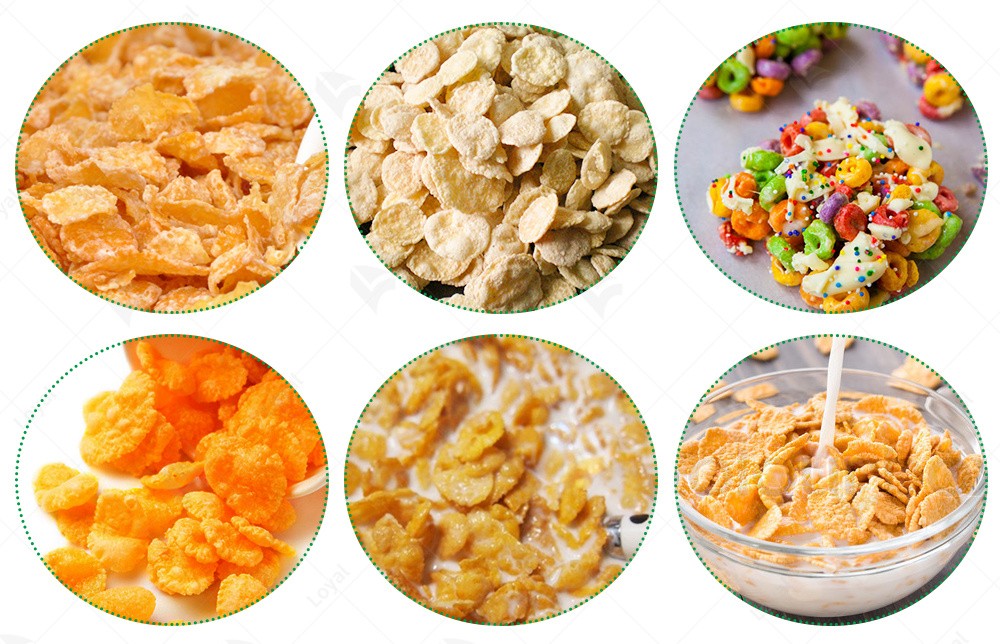
Regulatory Compliance and Food Safety Standards
In the ever-evolving landscape of industrial food production, regulatory compliance and adherence to stringent food safety standards stand as pillars of utmost importance. As experts in the field of food processing machinery, we recognize the paramount significance of ensuring that corn flakes lines conform to the latest regulatory requirements and uphold the highest levels of food safety.
Regulatory Compliance
Regulatory bodies worldwide continue to refine and reinforce standards governing food production processes, including those specific to corn flakes lines. From the initial stages of raw material handling to the final packaging phase, every aspect of the production line must align with established regulations. For instance, the Food and Drug Administration (FDA) in the United States imposes strict guidelines on equipment materials, cleanliness, and sanitation procedures to prevent contamination and ensure product safety.
In 2024, corn flakes manufacturers must stay abreast of updated regulations, such as the FDA's Food Safety Modernization Act (FSMA), which mandates preventive controls, risk assessment, and traceability throughout the manufacturing process. Compliance with such regulations necessitates not only technological advancements but also a comprehensive understanding of legal requirements.
Food Safety Standards
Achieving and maintaining food safety standards go hand in hand with regulatory compliance. Corn flakes lines must integrate state-of-the-art technologies and best practices to mitigate risks associated with microbial contamination, foreign object intrusion, and cross-contact allergens. Each component of the production line, from the corn cleaning and milling stages to the toasting and coating processes, must adhere to stringent hygiene protocols.
In 2024, the industry witnesses a heightened emphasis on predictive maintenance and real-time monitoring systems to ensure equipment reliability and product integrity. Automated cleaning-in-place (CIP) and sterilization-in-place (SIP) procedures have become indispensable features of modern corn flakes lines, reducing downtime and enhancing efficiency while safeguarding against microbial hazards.

Future Outlook and Opportunities
In contemplating the future of corn flakes lines, one can't help but recognize the transformative potential within the industry. As we delve deeper into 2024 and beyond, several key trends and opportunities are poised to shape the landscape of corn flakes production.
Automation Revolution: The ongoing march of automation within the food industry is set to redefine the efficiency and productivity of corn flakes lines. With advancements in robotics, artificial intelligence, and machine learning, manufacturers can anticipate streamlined operations, minimized downtime, and enhanced quality control. Integration of smart sensors and data analytics promises real-time monitoring and predictive maintenance, ensuring optimal performance of every component in the production line.
Sustainable Practices: Environmental consciousness continues to gain momentum, prompting manufacturers to adopt sustainable practices throughout the production process. From sourcing raw materials to packaging and waste management, the corn flakes industry is embracing eco-friendly initiatives. Innovation in recyclable packaging materials and energy-efficient machinery not only reduces environmental impact but also resonates with consumers increasingly mindful of sustainability.
Customization and Personalization: Consumer preferences are becoming increasingly diverse and discerning, driving demand for customized corn flakes products. Manufacturers are leveraging modular production lines equipped with versatile technologies to cater to varied tastes and dietary requirements. Whether it's gluten-free, organic, or fortified with specific nutrients, the ability to tailor offerings to individual preferences fosters brand loyalty and market differentiation.
Market Expansion: The global appetite for breakfast cereals, including corn flakes, continues to expand, propelled by changing lifestyles and dietary habits worldwide. Emerging markets present untapped opportunities for industry players to penetrate and capitalize on burgeoning consumer demand. Strategic partnerships, market segmentation, and localized product innovation are key strategies for capturing market share and sustaining growth in diverse geographic regions.
Digital Transformation: The digital revolution is reshaping every facet of the food industry, and corn flakes production is no exception. From precision agriculture techniques optimizing crop yields to blockchain technology ensuring traceability and transparency across the supply chain, digitalization holds immense potential for efficiency gains and quality assurance. Cloud-based software solutions facilitate remote monitoring and management of corn flakes lines, enabling seamless collaboration and decision-making across dispersed teams.
Research and Development: Innovation remains the lifeblood of the corn flakes industry, driving continuous improvement and product differentiation. Investment in research and development yields breakthroughs in ingredient technology, flavor profiles, and production methodologies. Collaboration with food scientists, nutritionists, and culinary experts fosters the creation of next-generation corn flakes formulations that resonate with evolving consumer preferences and health trends.

Reference
1. Food Processing:
- Website: [Food Processing](https://www.foodprocessing.com/)
2. Food Engineering:
- Website: [Food Engineering](https://www.foodengineeringmag.com/)
3. Process Industry Forum:
- Website: [Process Industry Forum](https://www.processindustryforum.com/)
4. Food Manufacture:
- Website: [Food Manufacture](https://www.foodmanufacture.co.uk/)
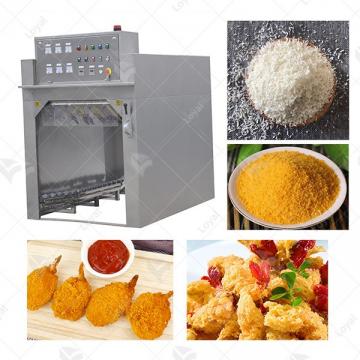 Commercial Japanese Panko Bread Crumb Grinder Machine
Commercial Japanese Panko Bread Crumb Grinder Machine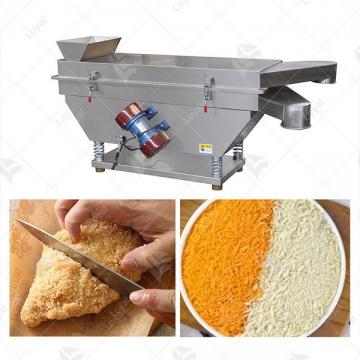 Japanese Bread Crumbs Processing Line
Japanese Bread Crumbs Processing Line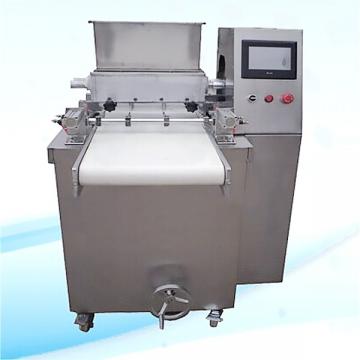 Automatic Cookies Making Machines
Automatic Cookies Making Machines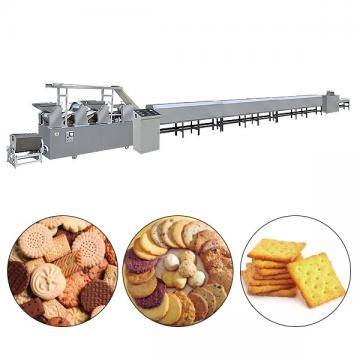 Fully Automatic Biscuit Making Machines
Fully Automatic Biscuit Making Machines